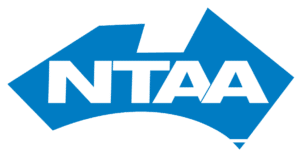Labour hire licensing is a regulatory system that is designed to protect workers and ensure that labour hire providers are operating fairly and legally. It is a process by which businesses that provide labour hire services are required to obtain a license from the government in order to operate.
Why you need the labour hire license?
The main objective of labour hire licensing is to prevent the exploitation of workers by labour hire providers. The licensing system aims to ensure that businesses are providing their workers with safe and fair working conditions, paying them correctly, and complying with employment laws and regulations.
To obtain a labour hire license, businesses are required to demonstrate that they are operating legally and ethically. This involves providing evidence of compliance with a range of legal obligations, including workplace health and safety, workers’ compensation, and taxation.
Once a business has obtained a labour hire license, they are required to comply with ongoing obligations, such as submitting regular reports to the licensing authority and complying with all relevant laws and regulations. Failure to comply with these obligations can result in penalties, including fines and the revocation of the business’s license.
The labour hire licensing scheme is typically administered by a government agency or department, such as the Queensland Government’s Labour Hire Licensing Compliance Unit, the Victorian Labour Hire Authority, or the South Australian Labour Hire Licensing Scheme. These agencies are responsible for overseeing the licensing process, monitoring compliance, and enforcing penalties for non-compliance.
Understanding the labour hire licensing schemes in all states in Australia.
In Australia, several states have implemented labour hire licensing schemes, including Queensland, Victoria, and South Australia.
Queensland
In Queensland, the labour hire licensing scheme came into effect on 16 April 2018. Under this scheme, businesses that provide labour hire services must hold a labour hire license. The scheme applies to a wide range of industries, including horticulture, meat processing, cleaning, and hospitality. Businesses that hold a labour hire license are required to comply with a range of obligations, including paying their workers correctly and ensuring that their workers are provided with a safe working environment.
Common industries examples in Queensland:
- Agriculture
- Horticulture
- Meat processing
Under the Queensland labour hire licensing scheme, businesses that provide labour hire services in these industries are required to apply for a license and comply with a range of obligations, including:
- Providing workers with appropriate training and supervision
- Paying workers correctly
- Ensuring that workers are provided with a safe working environment
- Complying with relevant laws and regulations, including workplace health and safety, workers’ compensation, and taxation
The application fee is based on the following levels of wage/salary expense (as of 1 July 2022):
| Total amount of wages paid in the financial year preceding the day the application is made | Tier | Licence fee as at 1 July 2022 |
|---|---|---|
| $1.5 million or less | 1 | $1,083.43 |
| $1.5 million and up to $5 million | 2 | $3,250.29 |
| Over $5 million | 3 | $5,417.15 |
Penalties and offences:
| Offence | Maximum penalty |
|---|---|
| Providing labour hire services without a licence. | Corporation – $431,250 (3000 penalty units) Individual – $148,638 (1034 penalty units or three years imprisonment). |
| Advertising, or in any way representing, that a person provides or is willing to provide labour hire services without a licence. | $28,750 (200 penalty units). |
| Entering into an arrangement with a provider who does not hold a licence to provide labour hire services. | Corporation – $431,250 (3000 penalty units). Individual – $148,638 (1034 penalty units or three years imprisonment). |
Resources: https://www.labourhire.qld.gov.au/
Victoria
In Victoria, the labour hire licensing scheme was introduced on 29 April 2019. The scheme applies to businesses that provide labour hire services in a range of industries, including agriculture, hospitality, and cleaning. To obtain a labour hire license, businesses must demonstrate that they are compliant with a range of legal obligations, including workplace health and safety, workers’ compensation, and taxation.
Common industries examples in Victoria:
- Horticulture
- Commercial cleaning
- Meat processing
In Victoria, businesses that provide labour hire services in these industries are required to obtain a labour hire license and comply with a range of obligations, including:
- Demonstrating that they are compliant with a range of legal obligations, including workplace health and safety, workers’ compensation, and taxation
- Ensuring that their workers are provided with a safe working environment
- Paying workers correctly and providing them with appropriate training and supervision
From 1 July 2021, the fees are tiered and calculated according to the applicant or licensee’s turnover for the previous 4 quarters at fee payment.
Before 1 July 2021, fee tiers are calculated according to the annual turnover of the applicant or licensee at licence application and licence renewal.
Fees – 2022-23 financial year
| Application fee | Annual fee | Renewal application fee | |
|---|---|---|---|
| Tier 1 business (turnover of no more than $2,000,000) | $1,651.32 | $1,146.75 | $1,651.32 |
| Tier 2 business (turnover of between $2,000,001 and $10,000,000) | $4,403.52 | $3,058.00 | $4,403.52 |
| Tier 3 business (turnover of more than $10,000,000) | $8,134.28 | $5,626.72 | $8,134.28 |
Offences and penalties:
There are significant penalties for breaches of the Labour Hire Licensing Act 2018.
Providing labour hire services without a licence
Providers found to have provided labour hire services without holding a licence that is in force face penalties exceeding:
- $145,000 for an individual
- $590,000 for a corporation
Advertising labour hire services while unlicensed
Individuals and organisations that advertise labour hire services without holding a licence that is in force or hold themselves out to be a labour hire provider, face penalties exceeding:
- $35,000 for an individual
- $145,000 for a corporation.
A host using an unlicensed labour hire provider
Hosts must only use licensed labour hire providers to provide labour hire services or face penalties exceeding:
- $145,000 for an individual
- $590,000 for a corporation
Resources: https://labourhireauthority.vic.gov.au/
South Australia
In South Australia, the labour hire licensing scheme came into effect on 1 March 2018. The scheme applies to businesses that provide labour hire services in a range of industries, including agriculture, hospitality, and construction. Businesses that hold a labour hire license are required to comply with a range of obligations, including providing workers with appropriate training and supervision, and ensuring that workers are provided with appropriate accommodation and transport.
Common industries examples in South Australia:
- Horticulture processing
- Meat processing
- Seafood processing
- Cleaning
Labour hire providers must provide the host with:
- their labour hire licence number
- their name and contact details
- the name and contact details of the responsible person for the licence.
Labour hire providers must provide each worker with:
- the Information notice for labour hire workers
- each time a worker is supplied to a new host
- when the circumstances on the notice change for an existing host – eg the pay rate changes
- a copy of the Fair Work Information Statement (FWIS).
Labour hire licence fees:
Fees include the application and annual amounts.
| Application type | Cost |
|---|---|
| Natural person application fee | $624 + $250 |
| Body corporate application fee | $624 + $1363 |
| Application to change a responsible person | $136 |
| Application to apply for substitute responsible person | $136 |
Offences and penalties:
- A person must not provide labour hire services except as authorised by a licence under South Australia Labour Hire Licensing Act 2017 (this Act). Maximum penalty:
- in the case of a natural person—$140 000;
- in the case of a body corporate—$400 000.
- A person must not advertise, or in any way hold out, that the person provides, is entitled to provide or is willing to provide labour hire services unless authorised to provide labour hire services by a licence under this Act. Maximum penalty: $30 000
- A person must not, without a reasonable excuse, enter into an arrangement for the provision of labour hire services unless the person providing the labour hire services is authorised to provide labour hire services by a licence under this Act. Maximum penalty:
- in the case of a natural person—$140 000;
- in the case of a body corporate—$400 000.
Resources: https://www.sa.gov.au/topics/business-and-trade/licensing/labour-hire





